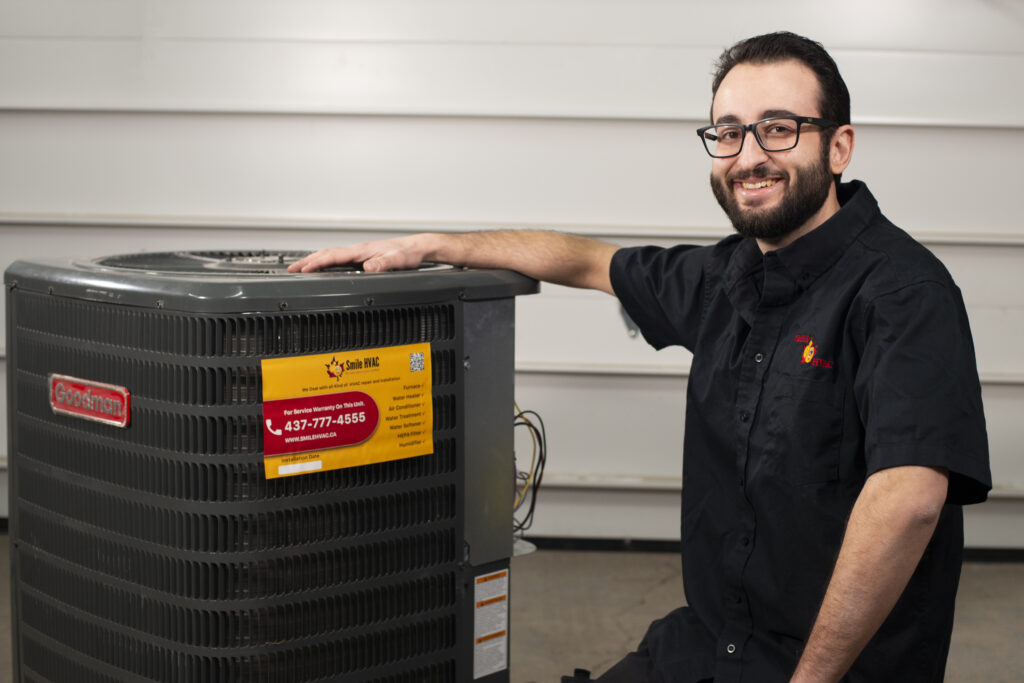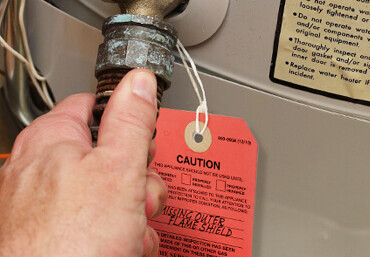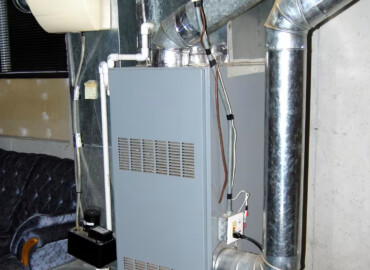How Much Does it Cost to Install Air Conditioner
As the summer heat approaches, many homeowners in Canada are considering installing or replacing their air conditioning units. However, the cost of installing an air conditioner can vary depending on several factors. In this comprehensive guide, we will explore the average costs of installing different types of air conditioners, factors that affect the cost, labor expenses, and additional considerations to help you make an informed decision. Whether you need a central air conditioning system, a ductless split system, or a portable unit, we’ve got you covered.
Cost Factors
Several factors contribute to the overall cost of installing an air conditioner. Understanding these factors will help you estimate the expenses involved in your specific installation.
System Type: The type of air conditioning system you choose will significantly impact the overall cost. Central air conditioning systems are generally more expensive compared to units designed to cool individual rooms, such as window units or portable air conditioners.
System Size: The size of the air conditioning system required for your home is determined by factors like the size of your space and the cooling capacity needed. Larger homes typically require more powerful cooling systems, which can increase the cost of installation.
Home Size: The size of your home is an essential consideration when determining the appropriate air conditioning system. Larger homes often require more extensive systems, which can be more expensive to install.
Labor: Labor costs are a significant part of the overall installation expenses. Systems that are more complex or difficult to install may require additional labor, leading to higher costs.
Brand: The brand you choose for your air conditioning system can also influence the cost. Some brands are more expensive than others, and high-end brands may come with a premium price tag.
Cost by Air Conditioner Type
Different types of air conditioning systems come with varying unit and labor costs. Here are some average costs for different types of air conditioners:
| Air Conditioner Type | Cost Range |
|---|---|
| Portable Unit | $90 – $500 |
| Window Unit | $150 – $550 |
| Ductless Split System | $2,000 – $14,500 |
| Central Air Conditioner | $3,800 – $7,500 |
| Heat Pump | $4,200 – $7,600 |
| Gas Pack System | $5,000 – $12,000 |
Cost Of Window AC Unit
Window units are the smallest and least expensive type of air conditioner. These units are designed to cool a single room and can be installed without professional assistance. The cost of a window unit typically ranges from $150 to $550, depending on size and cooling capacity.
Cost Of Portable AC Unit
Portable air conditioners are another option for cooling a single room. These units can be moved from room to room and stored when not in use. The cost of a portable air conditioner ranges from $90 to $500, depending on the unit’s size and cooling capacity.
Cost Of Ductless Split System
Ductless split systems consist of multiple air handlers connected to one or more outdoor condenser units. These systems allow for cooling multiple rooms without the need for ductwork. The cost of a ductless split system can range from $2,000 to $14,500, depending on the extent of the system and the number of units installed.
Cost Of Central Air Conditioner
Central air conditioning systems are the most popular choice for cooling entire homes. These systems consist of an indoor air handler and an outdoor condenser unit. The cost of installing a central air conditioner typically ranges from $3,800 to $7,500.
Cost Of Heat Pump
Heat pumps are versatile systems that provide both cooling and heating. These systems transfer heat indoors during winter and outdoors during summer. The cost of a heat pump ranges from $4,200 to $7,600, depending on the energy source used.
Cost Of Gas Pack HVAC System
Gas pack systems combine an air conditioner and a gas furnace in a single unit located outdoors. These systems are typically used in small homes in moderate climates. The cost of a gas pack system ranges from $5,000 to $12,000.
Cost by AC System Size
The size of the air conditioning system needed for your home depends on the square footage and other factors. Here are some estimated costs based on system size:
| AC Size (Tons) | BTUs | Unit Cost | Cost with Installation |
|---|---|---|---|
| 2 | $18,000 | $1,340 | $2,695 |
| 2 | $24,000 | $1,490 | $3,190 |
| 3 | $30,000 | $1,725 | $3,395 |
| 3 | $36,000 | $1,970 | $3,690 |
| 4 | $42,000 | $2,380 | $3,750 |
| 4 | $48,000 | $2,560 | $3,950 |
| 5 | $60,000 | $2,720 | $4,290 |
The cost of an air conditioning system increases with the size of the unit. It is crucial to choose the right size to ensure efficient cooling and avoid unnecessary expenses.
Labor Costs
Labor costs are a significant part of the overall expenses involved in installing an air conditioner. The complexity and difficulty of the installation process can influence the labor costs. It is recommended to hire professional HVAC contractors to ensure a proper and efficient installation.
Cost by Brand
The brand you choose for your air conditioning system can impact the overall cost. Some brands are more expensive than others, and high-end brands may come with a premium price tag. It is essential to consider the reputation, quality, and warranty offered by different brands when making your decision.
Additional Cost Considerations
In addition to the basic installation costs, there are some additional factors to consider that may affect the overall expenses:
- Additional Upgrades: Depending on your specific installation requirements, there may be additional upgrades needed, such as electrical panel upgrades or unit relocation. These upgrades can increase the overall cost.
- Government Rebates: It is worth exploring if there are any government rebates available for energy-efficient air conditioning systems. These rebates can help offset the cost of installation.
- Current Deals and Promotions: Keep an eye out for any current deals or promotions offered by HVAC companies. Taking advantage of these offers can help reduce the overall cost of installation.
DIY vs. Professional Installation
While it may be tempting to install an air conditioner yourself to save money, it is highly recommended to hire professional HVAC contractors. Professional installation ensures that the system is correctly installed, maximizing its efficiency and lifespan. Improper installation can lead to issues and potentially void manufacturer warranties.
How to Save
Installing an air conditioner can be a significant investment, but there are ways to save money without compromising on quality:
- Energy-Efficient Models: Consider investing in energy-efficient air conditioning systems. While they may have a higher upfront cost, they can significantly reduce energy consumption and lower your long-term operating costs.
- Regular Maintenance: Proper maintenance of your air conditioning system can prolong its lifespan and improve its efficiency. Regularly clean or replace air filters, keep the outdoor unit clear of debris, and schedule professional maintenance checks.
- Comparing Quotes: Obtain multiple quotes from different HVAC contractors to ensure you are getting the best price for the installation. Consider the reputation, experience, and customer reviews of the contractors before making your decision.
- Government Rebates: Check for any available government rebates or incentives for energy-efficient air conditioning systems. These programs can help offset the initial cost of installation.
Recommendation
When installing an air conditioner, it is essential to consider your specific needs, budget, and the reputation of the brand and contractor. Professional installation is highly recommended to ensure optimal performance and longevity of the system. Investing in energy-efficient models and taking advantage of government rebates can help make the installation more cost-effective in the long run.
Air Conditioner Cost FAQ
Q: How much does it cost to install a window air conditioner?
A: The cost of installing a window air conditioner ranges from $150 to $550, depending on the size and cooling capacity of the unit.
Q: Are portable air conditioners more expensive to install?
A: Portable air conditioners are typically less expensive to install compared to central air conditioning systems. The cost of a portable unit ranges from $90 to $500.
Q: What is the average cost of installing a central air conditioner?
A: The average cost of installing a central air conditioner is between $3,800 and $7,500, depending on factors such as system size and complexity.
Q: Can I install an air conditioner myself to save money?
A: It is recommended to hire professional HVAC contractors for air conditioner installation to ensure proper installation and avoid potential issues. DIY installation may lead to improper functioning and voiding of warranties.
Q: Are there any government rebates available for air conditioner installation?
A: It is worth exploring government rebate programs for energy-efficient air conditioning systems. These rebates can help offset the cost of installation and promote energy efficiency.
Q: How can I save money on air conditioner installation?
A: To save money on air conditioner installation, consider investing in energy-efficient models, regular maintenance, comparing quotes from multiple contractors, and taking advantage of government rebates.
Remember to consult with HVAC professionals for a detailed estimate based on your specific requirements and local market conditions.
Conclusion
Installing an air conditioner in Canada comes with a range of costs depending on various factors such as the type of system, size, brand, and labor involved. It is crucial to consider your specific needs, budget, and the reputation of the brand and contractor when making your decision. By investing in a quality air conditioning system and professional installation, you can ensure a comfortable and cool environment during the hot summer months. Regular maintenance and energy-efficient models can also help save on operating costs in the long run.




